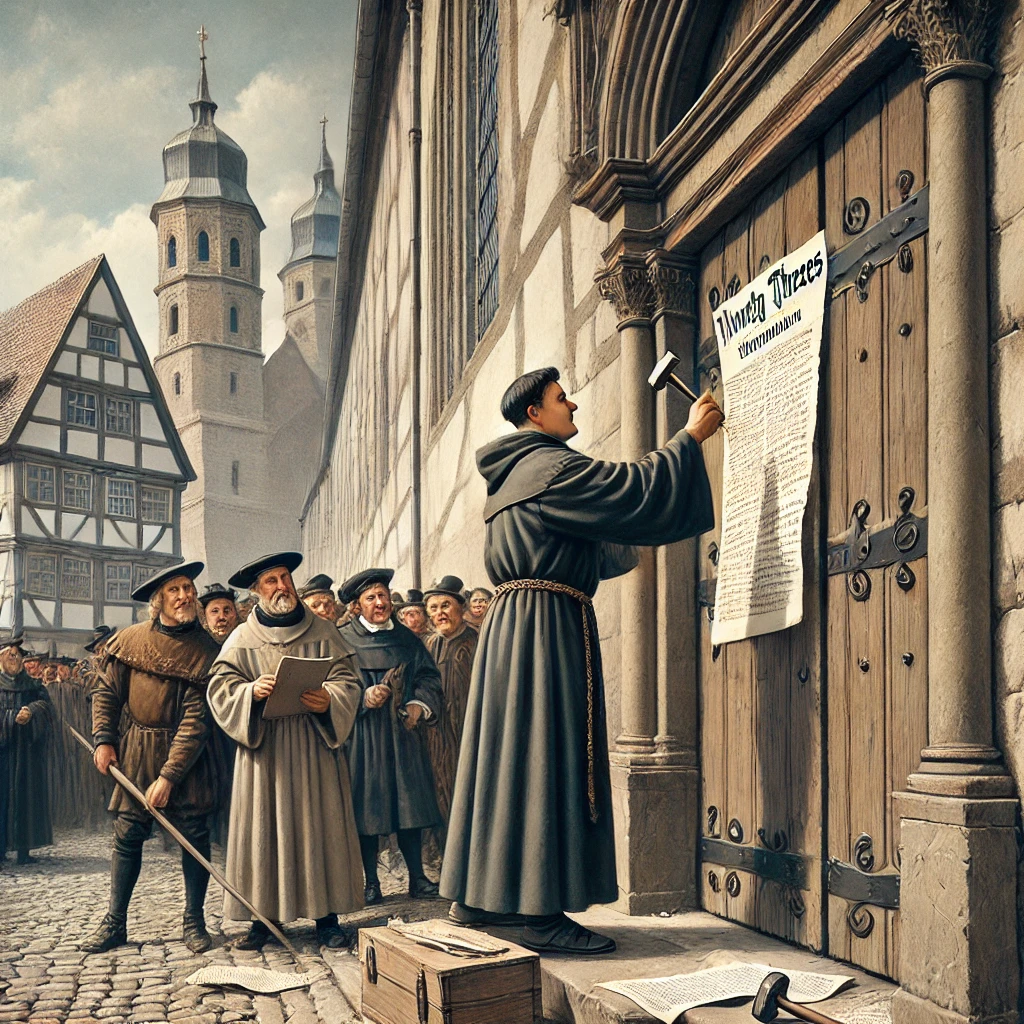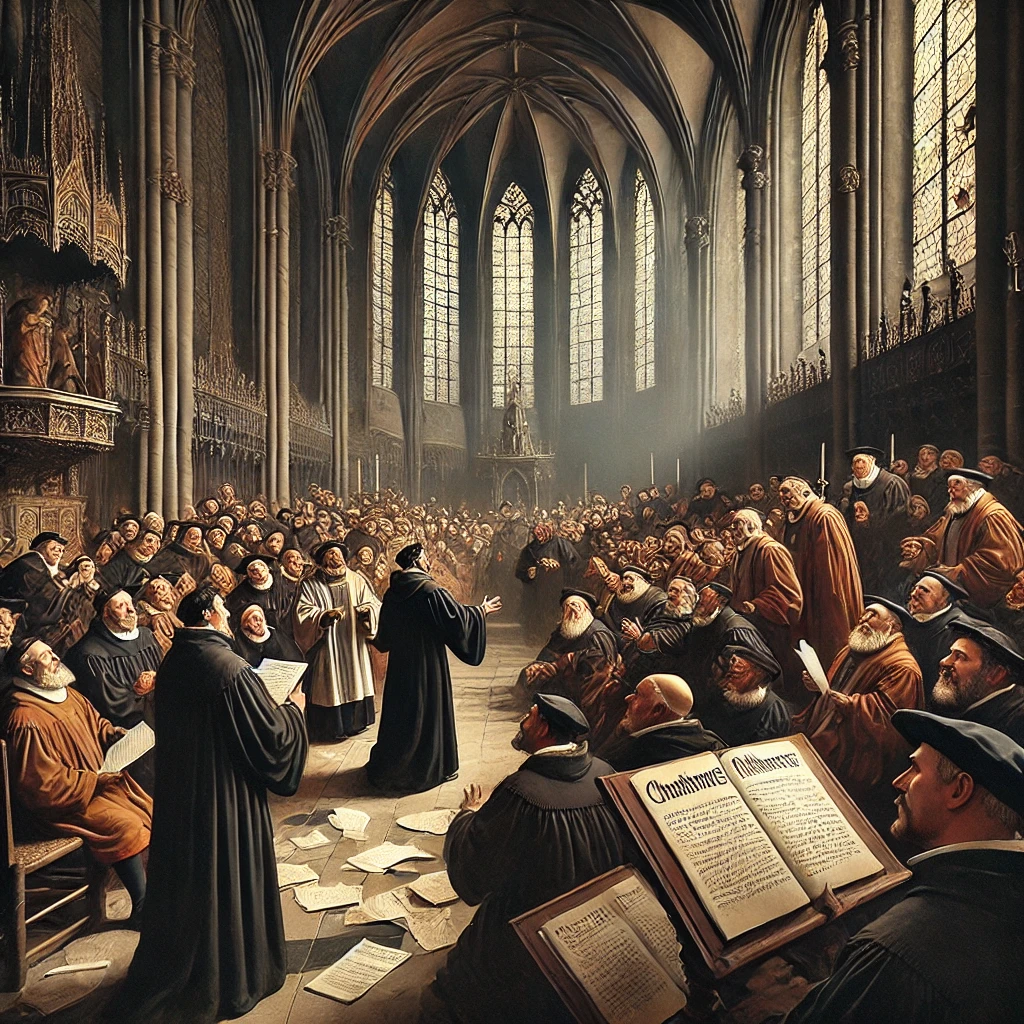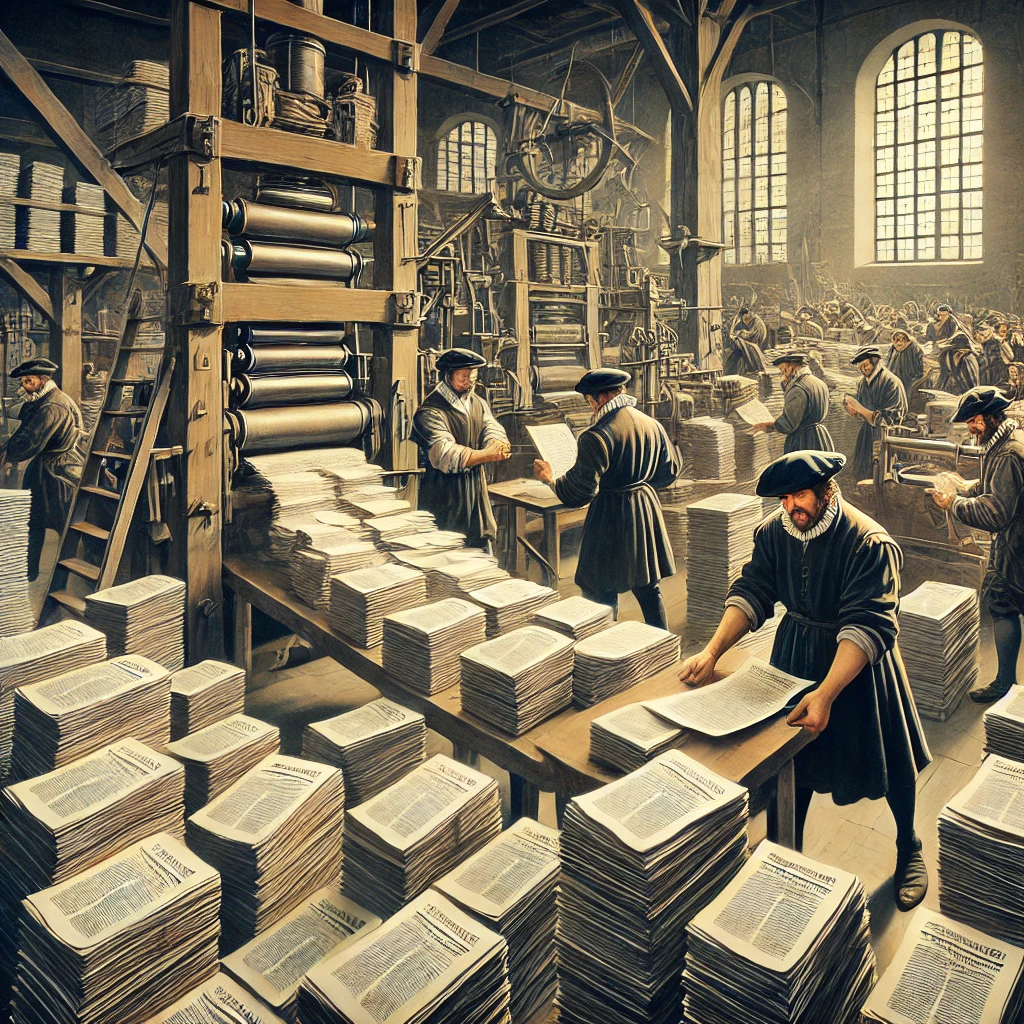On October 31, 1517, Martin Luther, a German monk and theologian, famously posted his Ninety-five Theses on the door of the Castle Church in Wittenberg, Germany. This bold act is traditionally regarded as the catalyst for the Protestant Reformation, a monumental religious movement that would challenge the Catholic Church’s authority and reshape Christianity in Europe. Luther’s document criticized the sale of indulgences and called for a return to scriptural teachings, fundamentally altering the landscape of Western religion.

The Context of the Theses
The early 16th century was a period of significant tension within the Catholic Church. The Church was grappling with widespread corruption, the sale of indulgences, and a growing discontent among the faithful. Indulgences were seen as a means to reduce the punishment for sins, often exploited by the Church as a financial tool. Many believed that these practices undermined the core principles of Christianity, which emphasized faith and repentance.
Luther, a devout monk and scholar, was deeply troubled by the misuse of indulgences and the moral implications of such practices. His theological studies led him to conclude that salvation could not be bought and that faith alone, not deeds or monetary contributions, was the path to God. This conviction set the stage for the creation of the Ninety-five Theses, which articulated his objections to the Church’s practices and sought to reform the institution from within.

The Content and Impact of the Theses
Luther’s Ninety-five Theses consisted of a series of points outlining his grievances against the Church. They included critiques of the sale of indulgences, the power of the papacy, and the need for a more personal relationship with God. The theses emphasized that salvation is a gift from God, accessible to all believers through faith alone, challenging the Church’s teachings and authority.
The posting of the Ninety-five Theses sparked widespread debate and discussion, rapidly disseminating through Europe thanks to the recent invention of the printing press. Luther’s ideas resonated with many who were disillusioned with the Church, and his call for reform quickly gained traction. The movement gathered momentum, leading to the emergence of various Protestant denominations and a significant decline in the Catholic Church’s influence.
The Protestant Reformation
Luther’s actions on October 31, 1517, are often seen as the beginning of the Protestant Reformation, a movement that transformed the religious landscape of Europe. The Reformation encouraged individuals to question the authority of the Catholic Church, promoting the idea of personal interpretation of the Scriptures. This shift in perspective empowered countless individuals to seek spiritual guidance outside of traditional Church structures.

As Luther’s movement grew, it faced fierce opposition from the Catholic Church, culminating in his excommunication in 1521. Despite this, Luther continued to advocate for his beliefs, translating the Bible into German and writing extensively on theology. His teachings laid the groundwork for many Protestant denominations, including Lutheranism, Calvinism, and Anglicanism, which would proliferate throughout Europe.
Lasting Legacy
The impact of Luther’s Ninety-five Theses and the ensuing Protestant Reformation was profound and far-reaching. The movement not only redefined religious practices but also influenced social, political, and cultural dynamics across Europe. The questioning of Church authority contributed to the rise of individualism and the concept of religious freedom, shaping modern Western thought.
Today, the anniversary of Luther’s posting of the Ninety-five Theses is celebrated by many as Reformation Day, a reminder of the importance of challenging injustice and advocating for personal beliefs. Luther’s legacy lives on in the teachings of numerous Protestant denominations, and his emphasis on faith and scripture continues to inspire believers around the world.
On October 31, 1517, Martin Luther’s posting of the Ninety-five Theses marked a pivotal moment in history, igniting the flames of the Protestant Reformation and forever altering the trajectory of Christianity. His courageous challenge to the practices of the Catholic Church prompted a movement that emphasized faith, personal interpretation, and spiritual autonomy. As we reflect on this significant event, we recognize its lasting impact on religious thought and the importance of standing up for one’s convictions. The legacy of Luther and the Reformation continues to resonate, serving as a powerful reminder of the transformative power of ideas and the enduring quest for truth and justice in faith.
